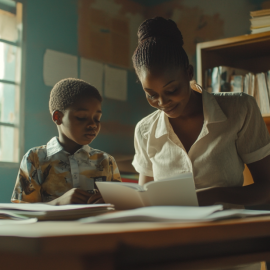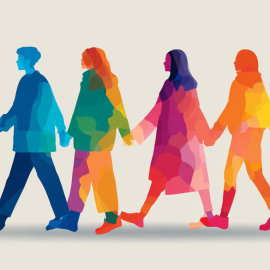
How does society’s definition of masculinity affect men’s emotional well-being? What does bell hooks say about masculinity?
bell hooks’s groundbreaking work, The Will to Change, explores the complex relationship between masculinity and emotional authenticity. Her insights challenge traditional notions of manhood and offer a more holistic understanding of male identity.
Discover more of bell hooks on masculinity, and how she challenges patriarchal norms.
bell hooks Redefines Masculinity
On masculinity, bell hooks offers profound insights into the challenges men face in today’s society. From an early age, you’re taught to adopt a rigid and commanding version of manhood that requires disconnecting from your feelings. Masculinity is frequently associated with the exaltation of solitude and the repression of emotions, except for anger, in a society dominated by patriarchal values.
The relentless expectation that you must always remain unemotional impedes your full participation in nurturing your emotional well-being and embracing the entirety of your human experience. You should be supported in cherishing your unique identity without feeling pressured to conform to conventional masculine standards. If you’re emotionally attuned, you might feel alienated because patriarchal norms devalue emotional connections among men.
The Cost of Emotional Suppression
You’re compelled to stifle your emotions, a practice that exacts a substantial emotional cost. If you adhere to traditional masculine norms, you might encounter psychological difficulties, such as depression and addiction issues. You may grapple with engaging your emotions, a barrier that not only impairs your capacity to experience love but also your ability to convey it.
Often, you might conceal your unease and concern behind a facade of fury, as it’s the sole sentiment that a male-dominated culture considers permissible for you to express. Frequently, emotionally distancing yourself lays the groundwork for becoming insensitive to your own feelings, which can pave the way for mental health concerns.
The Myth of Aggressive Masculinity
The erroneous notion that true masculinity is linked to dominance and hostility has persisted, masquerading as a system that upholds male supremacy. Societal norms frequently associate masculinity with the expectation of exhibiting aggression, dominance, and a predisposition toward violence.
From an early age, you’re often instructed to conceal your feelings, except for anger, and to steer clear of actions that might be perceived as typical of the opposite sex. The issue is exacerbated by the fear that if you show your emotions, you might be seen as homosexual, a concern that homophobia ingrains.
Challenging Patriarchal Norms
You’re indoctrinated with the notion that your inclination towards aggression is a confirmation of your manhood in a patriarchal society. The prevailing story that associates masculinity with inherent aggression and dominance needs to be contested and deconstructed because it fosters a setting where violence, whether psychological or physical, is used to validate one’s masculinity.
The stringent patriarchal standards that govern your emotional expressiveness, along with the anticipated aggressive behaviors, have profound repercussions. You might turn to aggressive behavior as a way to cope with emotions you’ve repressed.
Moving Towards Emotional Authenticity
To effectively address the problem, it’s crucial to lessen the negative effects of patriarchal beliefs on your emotional health and to dedicate efforts towards enhancing your ability to forge relationships. By challenging these norms, you can embrace a more authentic and emotionally fulfilling version of masculinity.






